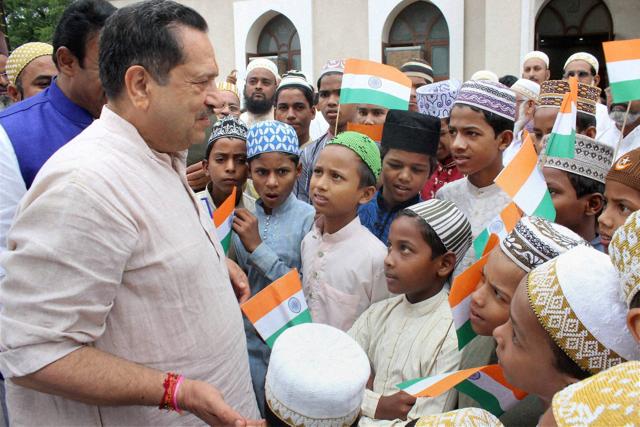Improvement in Muslims’ status can be thought of only in the long run
Restructuring reservations in government services on the basis of family income can help the Muslims.
Even 10 years after the submission of the Rajinder Sachar committee report on the educational backwardness of the Muslims, and its resultant impact on their employment status, it is regrettable that nothing has changed much as regards their representation in the higher echelons of government service such as the IAS or the IPS. In fact in the IPS the proportion of the Muslims has dwindled from 4% to about 3.2%. And though their representation in the IAS has increased, the rise has been minuscule.

Some of the highlights of the Sachar committee report were setting up an equal opportunity commission; giving the Arzal Muslims the status of scheduled castes or most backward castes; initiating steps to raise the employment share of the Muslims in the government sector; providing the community financial support, etc. Not much movement has been visible on this score, and not much can be expected at this stage, given the current government’s proclivities. The panel noted that just 3.5% of the Muslims were graduates, and the literacy level of the community, at 59%, was several notches below the national average. Overall, the panel had noted the situation of the community was not much better than that of the Dalits and sometimes much worse than that of the Other Backward Classes.
Read: Mumbai: Muslim cleric asks community to donate for secular education
That some sections among the Muslims are economically and educationally backward had been noticed by British administrators in the 19th century. This led to reservations for the depressed classes among the Muslims in the Government of India Act, 1935. Long before the Rajinder Sachar committee report, the government in the 1980s had created the Gopal Singh committee, which too had observed that a certain sense of alienation existed in the community. The reasons for the Muslims’ backwardness are mainly two: the upper class Muslims in British India, who could have been the harbingers of the community’s modernity, left India after Partition. And secondly the Muslims who were left behind were not only impoverished but also victims of violence, ghettoisation, etc. Why, even when the Sachar committee was formed, the hot-headed in the sangh parivar labelled it ‘Muslim appeasement’.
Read: Govt keen to stop bias against minorities in pvt jobs
At this stage all thinking about community’s welfare can be in the long run. One could be the gradual implementation of the Sachar committee recommendations. And another – though it may counter political opposition – is that restructuring reservations in government services on the basis of family income. As of now, reservations cannot be on the basis of religion.





